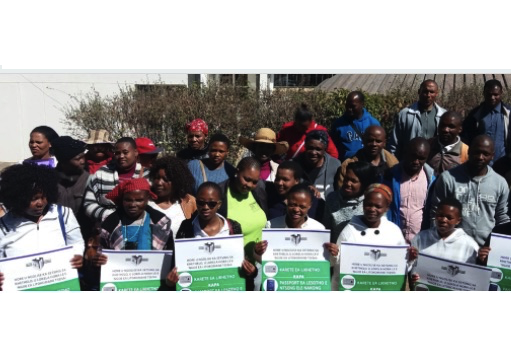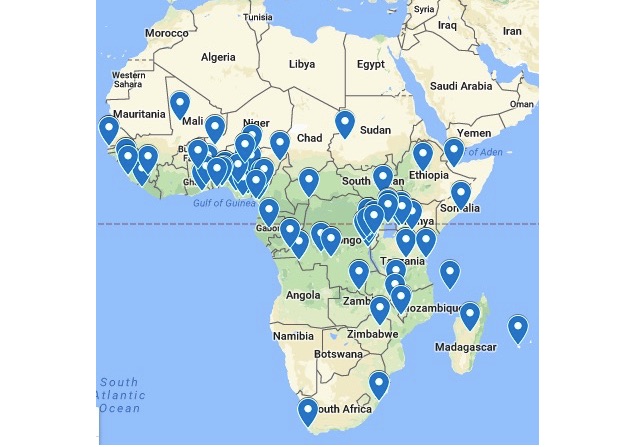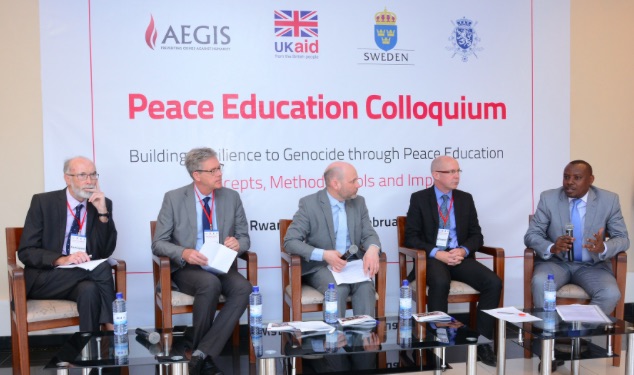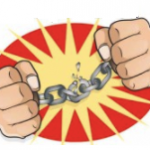. . DEMOCRATIC PARTICIPATION . .
An article from Development for Peace Education NTLAFALO: THUTO, KHOTSO LE BOITJARO
In its partnership with the Independent Electoral Commission (IEC) for dissemination of election education, the Development for Peace Education (DPE) held a series of workshops on the theme of “Local Government and the Culture of Peace” covering its allocated councils in the Berea and Leribe districts. The targets of, and participants in, these initiatives were DPE election educators team leader, the chiefs and selected secondary schools’ teachers ; as well as regular (political) phone-in radio talk show callers and opinion shapers of all known radio stations.

This was done cognizant of the fact participation in elections whether local or general / general had stubbornly stayed low despite multi-pronged, multi-stakeholder efforts to reverse this trend, and there was need to enthuse largest sections of the population to own their government by participation in its formation or birth through a popular choice. This in turn would lend the government the necessary integrity in the face of the various contending interests making demands of either service or protection, concessions or restrictions from the government. This proposition contrasts starkly with the obtaining scenarios where the majority of the populace would seem to have taken an “exit” from the public affairs or matters of the state and governance, and consider these as areas for indulging in conflict and friction.
All involved in these workshops in the end expressed their appreciation of their ample opportunity, feasibility, and potential ease of reclaiming their citizenship at local level through participation in local government; where everybody knows everybody in close communities, their history, connections, and social and antisocial traits, and all categories of achievements –and those given mandate of running community affairs are easy to monitor, advise or censure. Holding people thus elected accountable, it was agreed, would ultimately eliminate frequently occurring conflicts, and reproduce the culture of peace for which Basotho were known from the times of Moshoeshoe.
The culture of peace was defined as avoidance of violence in all its forms and manifestations, and elimination of conflict by tackling the root causes, not merely its occurrence. The various forms of violation were canvassed, including physical, gender, cultural, political, economic; together with their contextualisation and justification and the challenges of the changing times and social structure. The eminent elements of the culture of peace enumerated as (1) tolerance as opposed to confrontation; (2) equality of all persons regardless of their state of ability, gender, economic and other status; (3) cooperation and understanding instead of conflict; (4)seeking of friendship and partnership as opposed to creation of enemies; (5)harmonious co-existence with nature instead of its selfish exploitation; (6) respect for human rights in contrast to wanton disregard of such rights; (7)peaceful resolution of conflicts through dialogue instead of resort to war; (8) participatory democratic governance as opposed to dictatorship and unaccountable rule. Members of each of these categories were briefed on their specific importance for which they were included in the activity, and the instrumentality of their role in promoting participation in local government (elections) as a vehicle for building local peace.
From the outset the regular-caller “opinion leaders” were excited to get to know one another through meeting physically, hailing from the different districts of the country. They included both men (in majority) and women. They said this fact alone created or added to an urge of mutual accommodation and acceptance of one another as “rivals” followed by sizeable communities of loyal listeners of competing political identities / parties and independents.
Many of them were not meeting for the first time, since the organisers had employed the stratagem of bringing them together in this fashion in its two previous campaigns of public awareness and opinion survey activities under the tags of “The Government I want” (started in August 2015), and “The Lesotho I Want” (started in January 2016). They were urged to regularise the need for participation in local elections in their public-debate interventions through radio, and preach the philosophy of tolerance; building upon the budding culture where as participants in this callers’ forum had begun to wear their different (political) identities without being enslaved by them as instruments of animosity and conflict. They pledged to uphold the culture of peace in popularising their various parties’ platforms and highlighting the importance of local participation.
The teachers and their schools were chosen as partners in a voter turnout drive through competitions for pupil to get their parents and guardians to votes, prize debates on importance of local government; and for their universally recognised role as agents of socialisation – in that behalf capable of planting lasting messages on impressionable minds, hence the importance of having them on the peace culture train.
(Article continued in right column)
How should elections be organized in a true democracy?
(Article continued from left column)
The chiefs were included for their role as traditional authorities and in that capacity the first peace officers in terms of national administration norms and law, and for their non-partisan, unifying as permanently present mediators of community relations at various levels and in various forms. While teachers protested that they were not allowed to take part in party politics whereas they were expected to teach about it, the chiefs often complained that their respectability in community, and some said even said in the eye of the ministerial authorities, had faded or declined since the arrival of local government as it was tacitly taken to replace them. For their part, the chiefs were motivated with a reward for a chief whose Electoral Division scored the highest rate of voter turnout. The sessions were accompanied by drama performances highlighting local government resourcing, integrity, and efficiency.
These working gatherings brought out the ever-present disaffection with the continuing powerlessness of the people’s elected councils, their resource starvation, friction between the traditional authorities and the elected representatives, the councils and the central government, the imposition of anti-people candidates by the main political parties, and the self-willed nature of councillors; the use of councillor status for self-aggrandisement including abuse and desertion of communities – where some councillors actually outmigrated to places more in keeping with their new status. An exciting redefinition of the relationship of these tiers and categories that emerged from the callers’ forum was that the councillor should be viewed as a developer (montlafatsi), the chief as the ruler (mobusi) and the Government as benefactor (mofani oa matlotlo) – where the Government is obligated by call of duty and national accountability to enable local communities control over their resources and monetary wherewithal to exploit them according to their own named priorities, the elected representatives see to the welfare of community, and traditional authorities maintain peace and resolve conflicts. It was maintained that if each of these three “drivers” stayed in their lane as defined, there would not be any of the frequently named collisions.
The interlocutors strongly felt that if the national parties did not impose their grand conflicts on the choice of local candidates, the local populace had a history of fellow feeling, mutual sympathy, and sharing that ensured solidarity and resilience to regular crises – and their choices of personalities to manage their affairs was always based only on proven mettle of honesty in community affairs. A case was mentioned of main ruling party candidate who was eminently known to have led “anti-people” capturing of local facilities like the bus and taxi terminus, informal traders’ “mall” and district football ground in Leribe, whose prospective election was likely to lead to a dysfunctional council as the local community with its vendors’ association and other community organisations were already preparing for a grand show-down with him/her.
It was vehemently voiced that the anticipated reforms should perhaps also seek a national consensus that local elections should not field party candidates, because they were imposed and the party members were voting only to their headquarters directives. Not only did party councillors see themselves as answering first to their parties, but when parliamentarians became ministers, they abused their powers to hijack / divert locally dedicated resource, materials and equipment to their own localities, e.g infrastructure and utilities installations. At another level the district councils, which are supposed to be apex and fusion of all expressions of self-government at the local level, were cited as often spending monies on its own priorities at the expense of the local councils’ priorities. Resource starvation leading to tokenisation of the councils, campaign lies and unfulfilled promises, unresponsiveness of the councils; nepotism and favouritism in recruitment and opportunities like bursaries, etc. were depressing local government spirit in communities and needed rooting out.
The chiefs’ forums threw up broadly the same concerns, while highlighting how local government could be turned into an opportunity for tackling these challenges. It was noted that sadly the inception or return of local government (the first such form of government goes back to colonial times in 1960) under the country’s “second democracy” in 1997 took place under a canopy of intense political conflicts (which could only express itself most tragically in 1998), and it was widely touted by the rulers as a replacement of an imposed” hereditary rule of the chiefs with rule by elected people’s representatives and consolidation of democracy. The friction that followed led to intra-council tensions and clashes between the chiefs and the councils; which were diffused with a deliberate intervention of the NGOs to provide training on the functions of the councils, roles of elected and traditional authorities thereon, and conflict management techniques.it was felt the politicisation of local government since the introduction of political parties as council contestants (as opposed to the Development Councils of the Military Council and early Basutoland Congress Party (BCP) rule) was responsible for bitter relations with the chiefs.
The chiefs contended that that while local government had taken away from them their means of supplementing their upkeep through control of local resources, it had also left them still substantially responsible for community welfare as the council didn’t exercise real powers nor had their own budgets. The chiefs therefore deserved equal remuneration with the councillors, whose higher emoluments supposedly made them look down on the former. They felt, however that councillors couldn’t be given more powers over the community since they were only seasonal while chiefs were permanent by birth right. They, however, said while the areas of responsibility sometimes conflicted – supposedly as a result of the ministers who were ignorant about or incompletely committed to, the full essence of government- the functions of councillors were developments, while chiefs were overseers of community affairs / welfare, protectors of the law and punishment of deviants threatening such developments and local tranquility.








